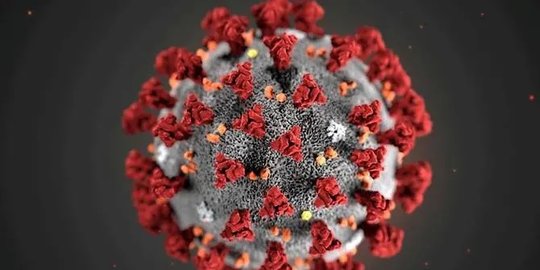Merdeka.com – Six months after infection with Covid, there is an increased risk of developing severe blood clots, according to research from Sweden.
The study found people with severe Covid, and those indexed during the first wave, were most at high risk of developing blood clots.
–
The findings highlight the importance of being vaccinated against Covid-19, the researchers said.
Blood clots can also occur after vaccination but the risk is much smaller, according to a British study.
People who have been infected with Covid-19 are more likely to develop blood clots, especially patients who are hospitalized. Scientists want to find out when that risk returns to normal.
Researchers tracked the health of 1 million people who tested positive for Covid between February 2020 and May 2021 in Sweden, and compared them with 4 million people in the same age and sex group who had never tested positive for Covid.
After Covid infection, they found an increased risk of blood clots in the legs or deep vein thrombosis (DVT), for up to three months, blood clots in the lungs for up to six months, and internal bleeding such as stroke for up to two months.
When the researchers compared the risk of blood clots after Covid with normal risk levels, they found: four in 10,000 Covid patients had DVT compared to one in every 10,000 people who were not infected with Covid; about 17 out of every 10,000 Covid patients have blood clots in the lungs compared to less than 1 in every 10,000 people who are not infected with Covid.
The study, published by the BMJ, said the increased risk of blood clots was higher during the first wave of the pandemic than in subsequent waves, possibly due to increased treatment during the pandemic and older patients starting to be vaccinated in the second wave.
The risk of blood clots in the lungs of people who have severe Covid is 290 times greater than normal, and seven times greater for people who have had mild symptoms of Covid than normal people. But there is no risk of internal bleeding in mild cases.
“For people who haven’t been vaccinated, that’s really a valid reason to get a vaccine – the risks far outweigh the risks from the vaccine,” said Anne-Marie Fors Connolly, principal investigator from Sweden’s Umea University.
2 of 2 pages
–
Beware of complications
Researchers couldn’t prove Covid caused blood clots in this study but they have several theories as to why it does.
It could be a direct effect of the virus on the layer of cells lining blood vessels, an exaggerated inflammatory response to the virus, or the body making blood clots at the wrong time.
University of Glasgow lecturer in public health Frederick K Ho said the study “reminds us of the importance of remaining aware of the complications associated with even minor Covid infections, including thromboembolism (blood clots).”
Ho adds that the risk of blood clots increases after vaccination, but “the magnitude of the risk remains smaller and persists for a shorter period than is associated with infection.”
[pan]–


:quality(80)/cdn-kiosk-api.telegraaf.nl/e57c5c32-b6a6-11ec-81d0-02d2fb1aa1d7.jpg)